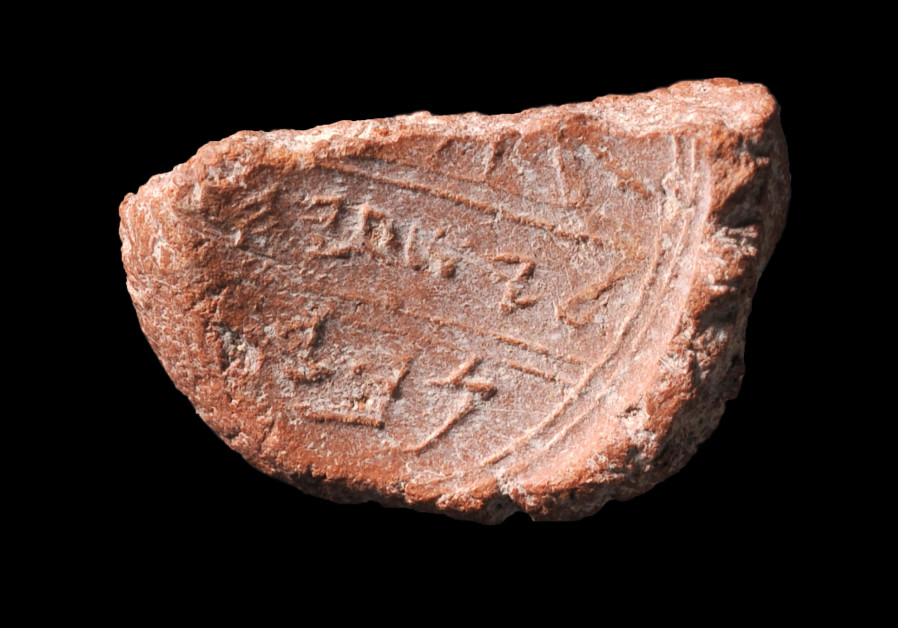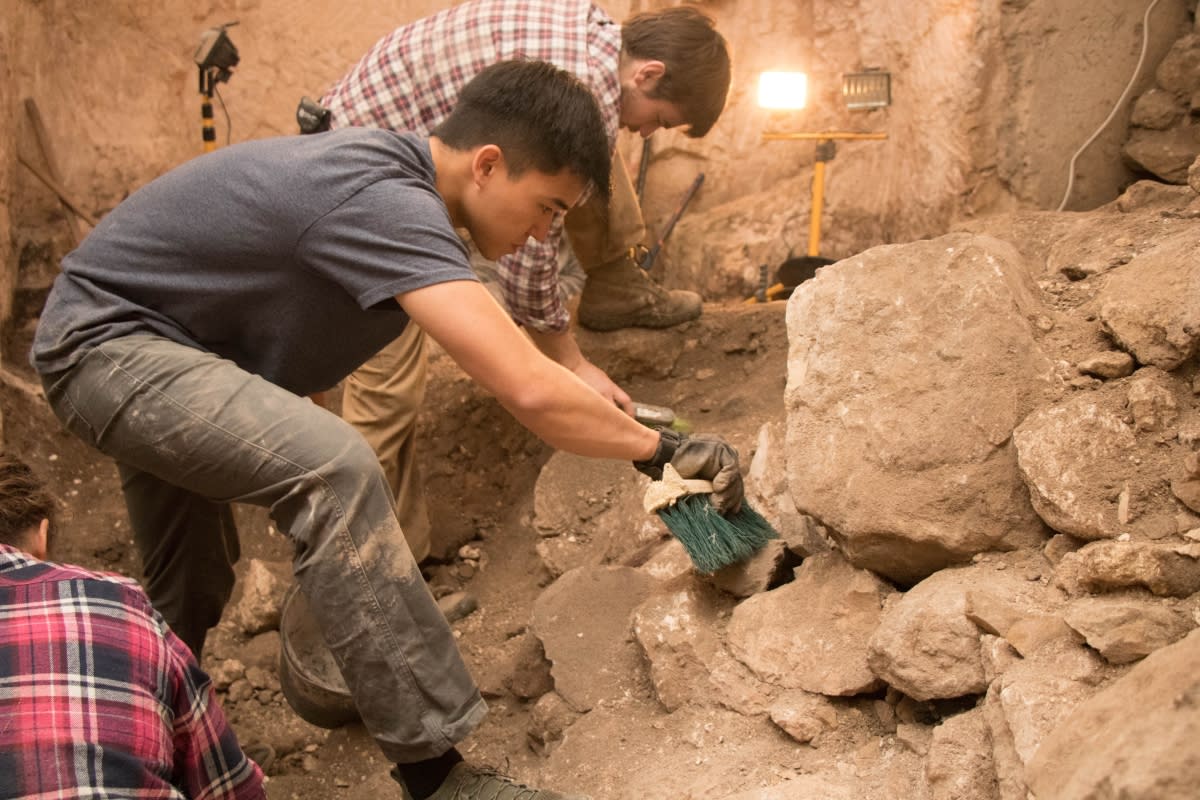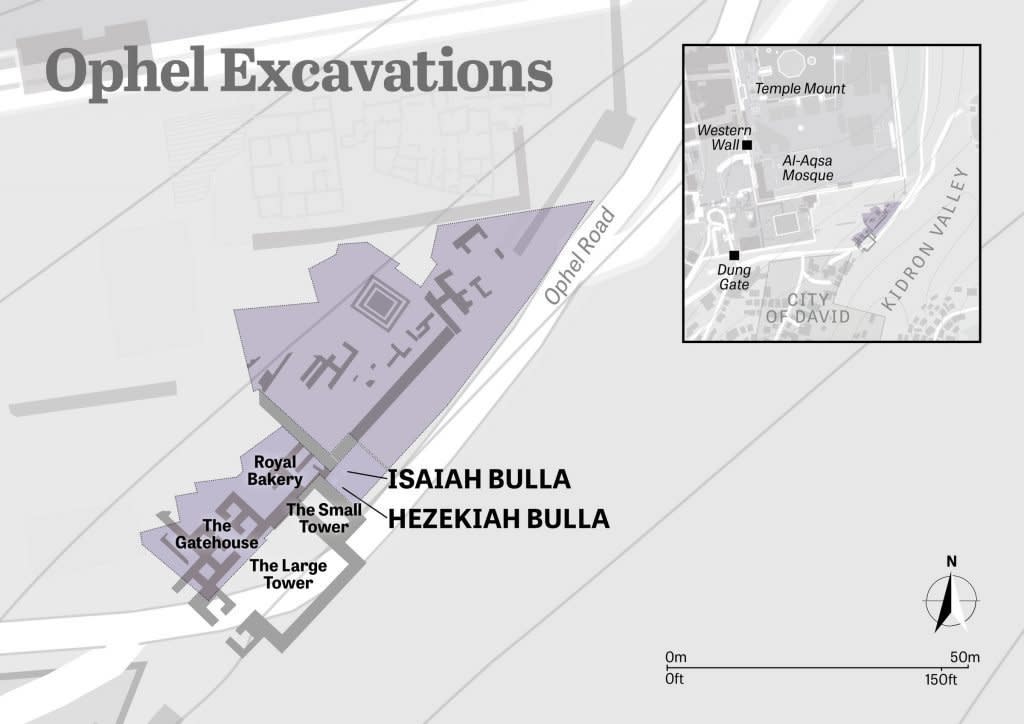Dozens of ancient items lent to US foundation which assists in excavations.

Clay seals believed to have been used by the biblical prophet Isaiah and King Hezekiah are set to be unveiled at a June event, which will be held simultaneously in Jerusalem and Oklahoma via a live stream.
While the seals and nearly three dozen other pieces loaned by the Antiquities Authority will be on display in Oklahoma, the archeologist who made the discoveries will deliver a keynote address in Jerusalem.
The connection between Oklahoma and the antiquities collection lies with the relationship between Hebrew University of Jerusalem’s biblical archeologist Dr. Eilat Mazar and the Armstrong International Cultural Foundation, whose main cultural center, the Armstrong Auditorium, is based in Edmond, Oklahoma.
During the 1970s and 1980s, Herbert W. Armstrong, for whom the foundation is named, sent hundreds of students from California’s Ambassador College to assist Dr. Benjamin Mazar, Eilat Mazar’s grandfather, in the excavations of the Temple Mount.
Today, the foundation continues this effort by sending student volunteers from Herbert W. Armstrong College to assist Dr. Eilat Mazar in excavating Jerusalem’s royal quarter, including the City of David and the elevated Ophel section at the foot of the Temple Mount.

In February, Mazar discovered the clay seals, or bullae, at the Ophel.
In announcing her discovery of the seal impression thought to have belonged to Isaiah, Mazar noted that a definitive determination could not be made, due to the fact that its upper end is missing and it left lower end is slightly damaged.
Isaiah advised Hezekiah in the Kingdom of Judah during the eighth century BCE.
The pieces will be displayed at the “Seals of Isaiah and King Hezekiah, Discovered” exhibition between June 10 and August 19.
While the exhibit’s curator, Brad MacDonald, described the Hezekiah and Isaiah bullae as “the stars of the show,” he also touted an “extraordinary supporting cast.”
In addition to the seals, the Oklahoma-based exhibit will feature royal Judean clay vessels, weapons used during the siege of Lachish, a replica of the famous Annals of Sennacherib Prism, and various Assyrian inscriptions and replicas of the famous Assyrian wall reliefs. Visitors will also be able to walk through a 10-foot-long exact replica of Hezekiah’s underground water tunnel in Jerusalem.
“We will use maps, illustrations, interactive aids and storyboards to connect all of the artifacts and create what we believe will be a unique and moving experience,” MacDonald said. “This is truly a historic exhibition. Artifacts from the Assyrian siege of Jerusalem have been exhibited previously, but these exhibits have never included the seals of King Hezekiah and the prophet Isaiah. Visitors would have to travel to London, Jerusalem, Istanbul and Chicago to see everything on display. Here we’ve brought them all together in one place.”

The exhibition seeks to highlight how Jerusalem avoided annihilation at the hands of the Assyrian army at the end of the 8th century BCE, the foundation said.
The launch of the exhibition will be hosted at the King David Hotel in Jerusalem.
“Over the last 50 years, the Armstrong International Cultural Foundation has supported groundbreaking archeological digs in Jerusalem with the goal of bringing biblical history to life and connecting people to their roots, allowing the past to empower the future,” said Brad MacDonald, the exhibit curator.
“To celebrate these incredible finds and the equally incredible milestone in our partnership, we wanted to bridge the gap between our supporters in Oklahoma and our friends in Jerusalem with a joint exhibition and reception,” MacDonald added. “Our hope is that this international event will set the stage for the next 50 years of friendship, collaboration and thrilling archeological finds.”
At the end of the exhibition, the foundation will return the artifacts to the Antiquities Authority. There is no set date for their display in Israel.
As reported by The Jerusalem Post
